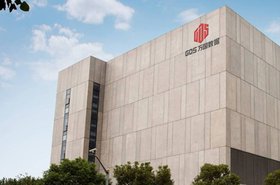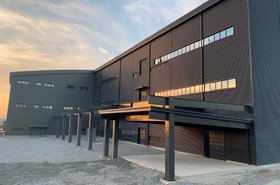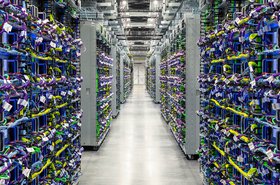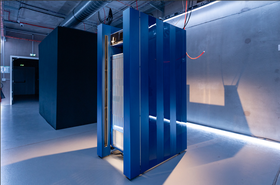Beijing has reportedly launched a public AI computing platform to help alleviate what Beijing Energy Holding labeled the “acute shortage of computing power” in the country that is needed for AI development.
The platform, dubbed the Beijing AI Public Computing Platform or the Shangzhuang project, is operated by state-backed Beijing Energy Holding (BEH) and will be available for use by educational institutions, research facilities, and SMBs.
According to a post on BEH’s website, the platform is scheduled to go online in the first quarter of 2024 and will provide 500 petaflops of computing power in the first phase and increase that to 1,500 petaflops in phase two.
“The inclusive computing power services provided by the platform will assist the cultivation and construction of the capital's artificial intelligence ecosystem and empower the transformation and upgrading of the real economy,” the post (translated by Google Translate) added.
Of the most powerful supercomputers, there are several systems in the country capable of at least 100 petaflops and this platform would make the top 10 of the current Top500 list of most powerful supercomputers if entered.
At the platform’s launch, BEH reportedly outlined its commitment to making the project as sustainable as possible, expressing an intention to power the platform entirely with green energy in the future.
To facilitate this, BEH announced it has signed strategic cooperation agreements with Alibaba Cloud Computing, Sugon Information Industry, and AI start-up Zhipu AI, to collaborate on green energy, public cloud, and intelligent computing infrastructure.
The launch of the platform comes eight months after the Beijing municipality called on public cloud providers to pool their compute resources for use by research facilities in the city in order to bolster the development of AI in the region.
According to China's own list of the most powerful supercomputers, there are several systems in the country capable of at least 100 petaflops and would make the top 10 of the current Top500 list of most powerful supercomputers if entered.
At 500 petaflops, the new Beijing system would be one of the most powerful globally, placing within the top five of the Top500. After its phase two upgrade, it would be the most powerful in China and one of only a handful of exascale systems in the world.
China has reportedly developed at least two exascale supercomputers already, with plans for up to 10 exascale HPCs by 2025. The country has not publicly released the specifications of the supercomputers, but the two in operation are both thought to be below 2 exaflops.
The Sunway OceanLight supercomputer is believed to be around 1.3 exaflops peak/1.05 exaflops sustained, and the Tianhe-3 is thought to be capable of 1.7 exaflops peak/1.3 exaflops sustained, but the country has not put them up for peer review.







